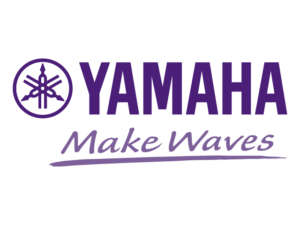61-key piano – which instrument to choose?
The 61-key piano has become an incredibly popular choice among musicians and aspiring pianists across America. This surge in popularity stems primarily from its significantly lower price point compared to full 88-key models, making quality digital pianos accessible to a much broader audience of music enthusiasts.
However, you’ve probably noticed the overwhelming variety of models flooding the market today, which can make selecting the right digital piano feel downright overwhelming. Well, you’re in luck! As your trusted guide in the world of digital pianos, I’m here to help you navigate through the options and find the perfect 61-key digital piano that matches your specific needs and budget.
In this comprehensive guide, we’ll first explore the key advantages and benefits that make a 61-key piano such an attractive option for both beginners and experienced players. Then, I’ll walk you through the most popular and highly-rated models currently dominating the market. By the end of this article, you’ll have all the insider knowledge needed to confidently choose your ideal 61-key piano and start your musical journey on the right note!



Why choose a 61-key digital piano?

Shopping for the best 61-key digital piano requires careful consideration of several key factors. Let’s dive into the essential elements you should evaluate to make an informed purchase decision that perfectly matches your musical needs and budget!
✅ Key strengths
Understanding the core benefits will help you determine if a 61-key piano aligns with your musical goals and lifestyle.
Budget-friendly investment: The most significant advantage of a 61-key piano is its exceptional affordability. With fewer keys comes reduced manufacturing complexity and materials, resulting in prices that are typically 30-50% lower than full-size models. This makes quality digital piano technology accessible to students, families, and budget-conscious musicians who want professional features without the premium price tag.
Ultra-portable design: These compact instruments excel in portability, making them perfect for musicians on the go. Whether you’re heading to band practice, music lessons, or a friend’s house for a jam session, your 61-key piano can easily travel with you. The space-saving design fits comfortably in cars, small apartments, and cramped practice spaces.
Lightweight construction: Complementing their compact size, most 61-key models weigh significantly less than their 88-key counterparts. This lightweight design eliminates the back-breaking effort typically associated with moving traditional pianos, making setup and storage incredibly convenient for mobile musicians and those who frequently rearrange their practice space.
Perfect for beginners: For aspiring pianists, a 61-key piano for beginners provides an ideal learning platform. The key range covers all essential scales, basic techniques, and thousands of popular songs. New players won’t feel overwhelmed by excessive keys they’re not ready to use, while the affordable price point reduces the financial risk of starting a new musical journey.
Bottom line: 61-key pianos offer the perfect combination of accessibility and portability – and that’s exactly why they’ve become America’s favorite choice for home music-making!
❌ Potential drawbacks
While 61-key pianos offer impressive value, it’s important to understand their limitations before making your purchase decision. Here are the main considerations that might influence your choice:
Limited key range compared to acoustic pianos: The most significant limitation of any 61-key piano is the reduced range compared to traditional 88-key acoustic pianos. While this key count is perfectly adequate for beginners and intermediate players, advanced pianists may find themselves constrained when performing complex classical pieces, jazz arrangements, or contemporary music that utilizes the full piano range. If you’re planning to tackle advanced repertoire or pursue serious classical training, you may eventually need to upgrade to an 88-key digital piano.
Potentially lower performance standards: Since most budget 61-key pianos are designed with affordability and beginner-friendliness in mind, manufacturers sometimes make compromises in sound quality and key action. You might encounter:
- Less sophisticated sound sampling compared to premium models
- Simpler key weighting that doesn’t fully replicate acoustic piano feel
- Fewer built-in sounds and advanced features
- Basic pedal responsiveness
However, it’s worth noting that many modern 61-key models offer surprisingly high-quality sound and touch sensitivity that rivals more expensive alternatives.
These limitations shouldn’t discourage most buyers, especially those starting their piano journey or looking for a versatile practice instrument. The key is matching your current skill level and musical goals with the right instrument. For the vast majority of players, a well-chosen 61-key model will provide years of satisfying musical experiences.
Pro Tip: Consider your long-term musical goals when making this decision – you can always start with a quality 61-key piano and upgrade later as your skills develop!
The Casio CT-S100 – the ultimate budget-friendly digital piano
The Casio CT-S100 still remains a fantastic choice for beginners on a tight budget. The Casio CT-S100 stands out as the most affordable 61-key digital piano on the market today, making it the perfect entry point for budget-conscious musicians ready to start their piano journey without breaking the bank. Despite its incredibly competitive price point, this budget 61-key piano delivers impressive quality that’s ideal for anyone with limited funds who wants to learn piano without going into debt.
This 61-key piano offers excellent sound quality along with numerous built-in voices and rhythms. The convenient carrying handle and lightweight construction make it extremely easy to transport wherever you need it. But that’s not all – this instrument also features battery-powered operation, allowing you to play it anywhere you want! It can connect to external devices via its USB/MIDI port, and you can also plug in headphones to practice without disturbing others around you.
However, it does have one significant drawback the lack of input for connecting a sustain pedal. What a shame, because this little keyboard had everything else going for it! If you need to use a sustain pedal, you’ll have to look at higher-end models instead.
The Casio CT-S100 still remains a fantastic choice for beginners on a tight budget.
Tell me more about the Casio CT-S100The Rockjam 61 – the most feature-packed at the best price
The Rockjam 61 is a smart choice for a 61-key digital piano. This model offers a complete package including a stand, bench, headphones, and sustain pedal – all included! It’s absolutely perfect for getting everything you need without having to purchase accessories separately from different sources. This model also provides free access to a learning app, which is ideal for beginners looking to make real progress! Finally, you’ll benefit from battery power capability and USB/MIDI connectivity, making it incredibly convenient to connect external devices like smartphones, tablets, or computers.
Despite having somewhat inferior sound quality and key feel compared to the previous model, the exceptional versatility makes the Rockjam 61 a musical instrument with outstanding value for money!
Tell me more about the Rockjam 61The Roland Go-61P – a real versatility
While the previous instrument has nothing left to prove, some people prefer to stick with well-known brands. That’s where the Roland Go-61P comes into play! This 61-key piano offers the same advantages as previous models – wireless capability, headphone jack, optional pedal and stand… But this one provides you with superior learning features. Indeed, this model gives you access to the Skoove app, which is highly regarded in the field of music education. Additionally, this digital keyboard offers wireless Bluetooth connectivity, making it incredibly convenient to connect to external devices in no time.
With its brand reputation and exceptional durability, the Roland Go-61P piano will undoubtedly be an excellent partner for learning!
Tell me more about the Roland Go-61PThe Yamaha Piaggero NP-12 – the best 61-key digital piano
How could we not finish this ranking with the Yamaha Piaggero NP-12? This will undoubtedly be an excellent choice for any beginner pianist. It indeed offers numerous significant advantages. For those who love portability, this 61-key piano will delight them with its 16-hour battery life. But that’s not all this popular musical instrument has to offer. Indeed, beyond its impressive connectivity and ideal lightweight design, this musical instrument delivers remarkable sound quality. And that’s a critically important element when you’re playing piano! This is coupled with its excellent key feel, which is more than effective for this price range, though obviously still inferior to a real acoustic piano.
In short, the Yamaha Piaggero NP-12 has nothing left to prove and isn’t this popular for no reason. In my opinion, it’s the best possible 61-key digital piano choice.
Tell me more about the Yamaha Piaggero NP-12Let’s sum up
To conclude, I would say that a 61-key digital piano will be an optimal choice for beginners. Since these instruments are available at budget-friendly prices, they’re perfectly suited for this user category. Keep in mind, however, that these keyboards are designed for beginner pianists. Consequently, an advanced pianist won’t find what they’re looking for. They would much prefer to turn to an 88-key model, or perhaps even a digital grand piano for the most dedicated players! These models will obviously be more expensive, so you’ll need to find the right compromise that best matches your expectations.
Therefore, make your choice with patience and wisdom, and don’t hesitate to use all the available resources on this site to go further. For instance, if you’re a beginner, I can suggest checking out my digital piano buying guide for beginners.
